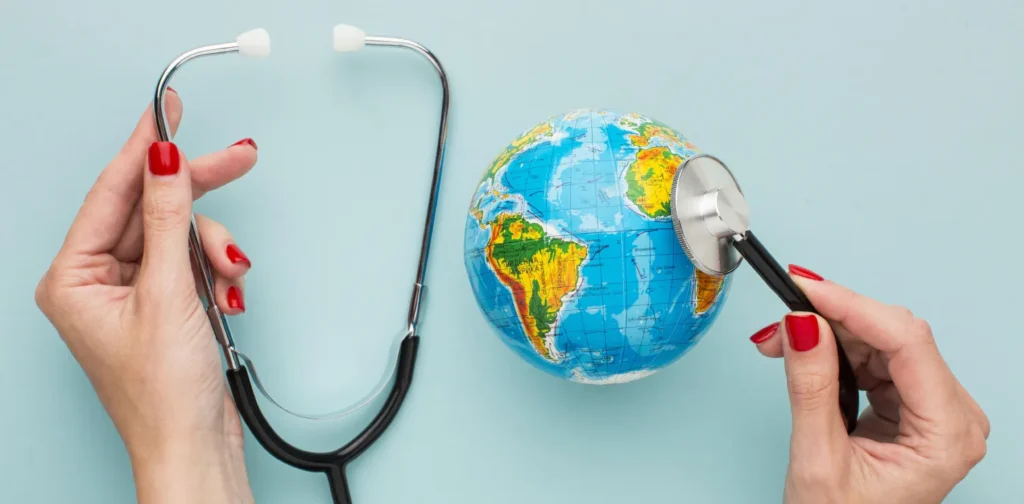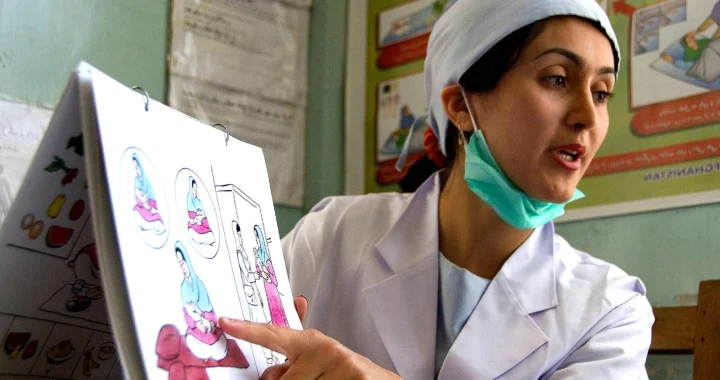Integrating Climate and Health Data to Support Informed Decision-making

Photo: Freepik.
Climate change adds into the persisting challenges to the global health system. It brings more intense and frequent climate events that worsen living conditions and increase the risk of death and diseases. This reality underscores the urgency to integrate climate and health data to support informed decision-making in the health sector.
How Climate Affects Global Health
Roughly 3.6 billion people live in areas most likely to feel the impacts of climate change. Climate change can increase the risk of deaths, noncommunicable diseases, the emergence and spread of infectious diseases, and health emergencies. The World Health Organization (WHO) estimates that climate change can cause 250,000 additional deaths annually between 2030 and 2050. Furthermore, the crisis can cause between 2–4 billion USD in direct damage to the health sector annually by 2030.
Therefore, mitigating climate risk in the health sector is essential to avoid further damage. This calls for high-quality data integration between health and climate at local, national, and international levels for more informed decision-making in the health sector.
Integrating Data Between Agencies
Health and climate connections have often been emphasized in global action plans and meetings. The topic was endorsed by global leaders during COP28, citing the severe health implications of the crisis and actions needed to address them.
Meanwhile, the WHO and WMO, agencies responsible for health and climate, declared commitments to collaborate and safeguard the health sector from climate risks by signing a Collaboration Framework on Climate, Environment and Health in 2018. An implementation plan document was published in 2023 detailing strategies to achieve this goal.
In September 2024, the WHO, WMO, and partner organizations convened in Geneva to discuss the advancement of climate and health data integration. WMO Deputy Secretary General Ko Barrett said, “By combining the expertise of the meteorological community with that of the health community, there is tremendous potential to support the most vulnerable.”
The meeting called for enhanced collaboration between health and meteorological actors to create robust support tools for informed decisions. While the WHO and WMO already have several existing platforms and initiatives, such as the ClimaHealth website and the Health Data Collaborative, the adoption of climate-informed health decision support systems at local and national levels remains limited.
Therefore, improving data availability and accessibility, as well as matching data standards, can bridge the gap in climate and health information systems.
Better Synchronization Between Climate and Health
Climate mitigation and adaptation must go simultaneously with the efforts to halt the crisis from worsening. As a vital sector, the global health system must be prepared to withstand the current and possible impacts of climate change in the following years.
Therefore, creating an integrated system between climate and health, rather than individual and separate actions, is extremely crucial right now. This requires awareness, commitment, strategic investments, and concrete actions from governments and organizations at all levels, to create standardized protocols and infrastructures for a resilient health system for all.

Co-create positive impact for people and the planet.
Amidst today’s increasingly complex global challenges, equipping yourself, team, and communities with interdisciplinary and cross-sectoral insights on sustainability-related issues and sustainable development is no longer optional — it is a strategic necessity to stay ahead and stay relevant.

Kresentia Madina
Madina is the Assistant Manager of Stakeholder Engagement at Green Network Asia. She holds a bachelor’s degree in English Studies from Universitas Indonesia. As part of the GNA In-House Team, she supports the organization's multi-stakeholder engagement across international organizations, governments, businesses, civil society, and grassroots communities through digital publications, events, capacity building, and research.


 Systemic Shift to Enable Healthy School Food Environments
Systemic Shift to Enable Healthy School Food Environments  Looking into the Global Midwife Shortage
Looking into the Global Midwife Shortage  Reframing Governance in the Era of Water Bankruptcy
Reframing Governance in the Era of Water Bankruptcy  Strengthening Resilience amid Growing Dependence on Space Infrastructure
Strengthening Resilience amid Growing Dependence on Space Infrastructure  Indian Gig Workers Push Back Against 10-Minute Delivery Service Strain
Indian Gig Workers Push Back Against 10-Minute Delivery Service Strain  Call for Governance: Grassroots Initiatives Look to Scale Efforts to Conserve Depleting Groundwater
Call for Governance: Grassroots Initiatives Look to Scale Efforts to Conserve Depleting Groundwater